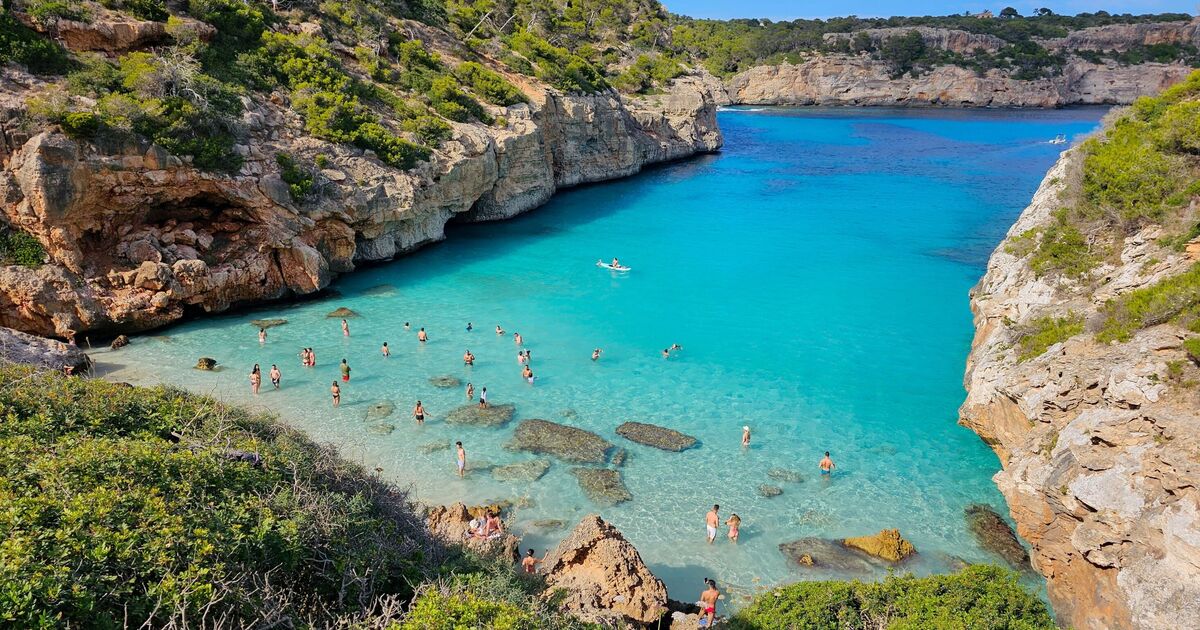“Big Brother”-style data collection and tourist taxes could be responsible for the drop in popularity of a Brit-favourite holiday destination.
The Balearic Islands, a sunny, sandy archipelago near the Iberian Peninsula, saw a 4.3% decrease in holiday bookings this week, according to data from the booking platform TravelgateX.
While it also marked a 19.8% rise on the same period in 2024, the introduction of new travel rules and a growing anti-tourist sentiment has sparked panic in popular parts of Spain ahead of this year’s peak holiday season.
“Tourists will need to prepare for more paperwork and higher costs” when visiting the Balearic’s most popular spots, including Majorca and Ibiza, the Majorca Daily Bulletin reported.
“The introduction of biometric data collection, the new tourist taxes, and the ongoing concerns regarding over-tourism are reshaping how tourists experience destinations like the Balearics,” the English-language daily newspaper added.
“Travellers may find themselves reconsidering where they go based on rising fees and new entry requirements, potentially shifting demand to less-visited regions or countries that do not impose such measures.”
The Spanish Government introduced new data collection regulations for overnight visitors in December 2024, requiring hoteliers and B&B owners to collect personal information, including financial details and addresses from their guests.
Critics of the measure compared it to the constant surveillance of the reality TV show Big Brother, but the Government insisted that it would help to boost national security.
Tourist taxes charged on overnight stays are also set to rise in some parts of the country, with visitors to cities including Tenerife, Seville and Alicante paying more this year.
Spanish authorities are also cracking down on short-term holiday lets in the wake of protests over unaffordable local housing. New short-term registrations have been banned in tourist hotspots like Malaga, and cities including Madrid have brought in restrictions on the number of holiday lets allowed in each neighbourhood.
The changes could be precipitating a shift towards more internal tourism. 51.3% of the Balearic Islands’ tourism is linked to Spaniards, with Britons trailing behind at 20.6%, followed by the Germans at 4%.
However, a modest week-on-week footfall decline has not reassured anti-tourism campaigners that their work is finished yet. Members of the Menys Turisme, Més Vida (less tourism, more life), who coordinated demonstrations against increasing visitor numbers last year, gathered last weekend in Mallorca to regroup and “double [their] effort” ahead of the 2025 season.
The main issues raised by protestors at the meeting included unaffordable housing, tourist congestion of Balearic towns and cities and job insecurity fuelled by the archipelago’s growing population of expats.










